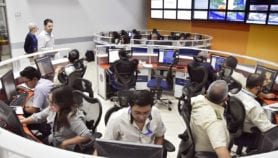By: Salik Shah
Send to a friend
The details you provide on this page will not be used to send unsolicited email, and will not be sold to a 3rd party. See privacy policy.
[KATHMANDU] Nepal, following the example of its neighbours India and China, is attempting to transform itself into an information technology (IT) hub.
The Nepalese government and local companies hope to encourage IT business, promote the use of digital technologies and reduce the digital divide between urban and rural areas. But some feel development should be happening faster.
“Nepali professionals have to compete with international professionals now that we have joined the World Trade Organisation,” says Lochan Lal Amatya, president of the IT professional forum. He said the IT sector hadn’t developed as much as it could have.
Nepal Telecom, a state-owned telecommunication provider, has reduced the cost of Internet access by more than 80 per cent, in line with government proposals to increase access to the web. However, rural residents pay more than five times as much to access the web, compared with city-dwellers, and computer literacy is low.
He noted that there were many obstacles to overcome before Nepali companies established themselves as a reliable destination for outsourced IT work, including an emphasis on education rather than practical skills used in industry.
“We have to lure foreign companies to invest in Nepal,” Amatya told SciDev.Net. “We have to win their confidence by completing the small projects that we get. Only then will bigger projects come to us,” he said.
Rajan Raj Pant, general secretary of the Computer Association of Nepal, expressed dissatisfaction with the slow development of the country’s IT sector.
He said it had been been more than half a decade since a proposed IT park in the Kavrepalanchowk district, 30 kilometres east of Kathmandu, was announced, but had yet to open. “The government doesn’t seem as aggressive as it should be,” Pant said.
He told SciDev.Net that Nepal was well placed to benefit from developments in India and China.
“There are great opportunities in Nepal itself,” Pant said. “The government should promote distance learning and the use of the latest technologies to educate rural youths, so that the increasing digital divide among the rural and urban youth can be reduced.”












